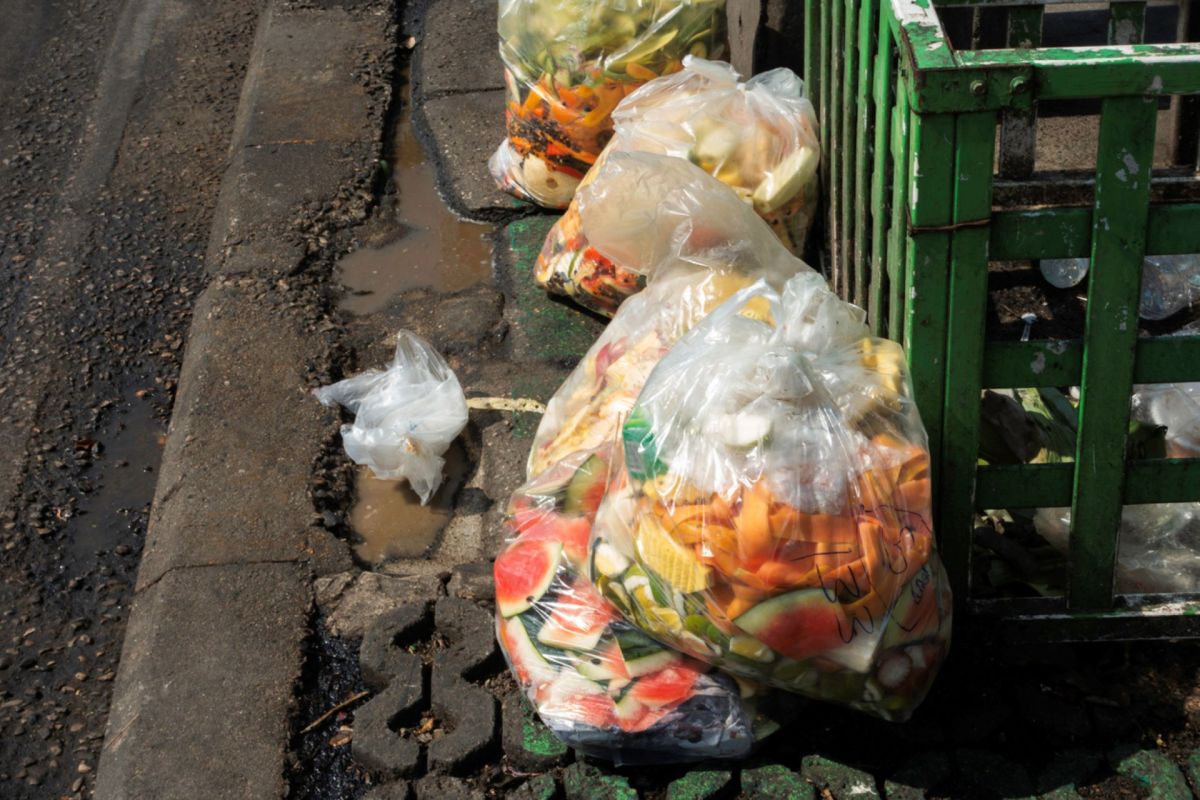Food is a huge part of any household's budget — and, sadly, a lot of it goes to waste. The average American throws away 325 pounds of food every single year, costing us about $1,200 per average family per year.
Food waste is also a major inconvenience. It's hard to plan your meals if you're not sure which ingredients are fresh enough to use, and spoiled food is one of the smelliest, messiest items in your household trash.
 What single change would make the biggest dent in your personal food waste?
What single change would make the biggest dent in your personal food waste?
 Not buying food I don't need
Not buying food I don't need 
 Freezing my food before it goes bad
Freezing my food before it goes bad 
 Using my leftovers more effectively
Using my leftovers more effectively 
 Composting my food scraps
Composting my food scraps 
 Click your choice to see results and speak your mind
Click your choice to see results and speak your mind
Taking a few easy steps to cut back on this form of waste can save you almost $400 a year, keep thousands of pounds of trash out of landfills, and make your life much simpler.
Shop smarter
Ending food waste starts before you even enter the grocery store. If you buy too much food or choose items that you won't eat, you're much more likely to throw things out. Before you go shopping, plan some of your meals and make a list.
You can also shop smarter by choosing services that help you spend less on groceries. Apps such as FlashFood, Martie, Too Good To Go, and Farmish let you buy food at steep discounts. This food is sometimes close to its sell-by date, so you'll have to plan accordingly, but if you do, you could slash your grocery bill in half — and any food that goes bad will be less of a loss than if you had bought it for full price. Plus, you're also helping businesses cut back on their food waste.
Other eco-friendly grocery hacks that help save money and reduce trash include bringing your own containers.
Keep food fresh longer
Once you've started buying only the food you intend to eat, it's important to keep it from spoiling — and doing so can save you another $60 per year.
For some produce, that's as simple as washing it when you bring it home from the store and drying it thoroughly afterward. For bread that's gone stale, a dunk in water followed by a few minutes in the oven does the trick. To keep food fresh long-term, freeze it.
It's especially important to store items correctly to make them last as long as possible. Different foods need different conditions, so here's a hack for correctly storing produce in your fridge, depending on its needs.
Do more with your leftovers
If you end up with leftovers, refrigerating them promptly and eating them within three or four days means you can make the most of your food. If you throw out even 10% less food that way, you'll save $120 a year.
TCD Picks » Upway Spotlight

Eating leftovers is easy when you like the meal, but if you didn't enjoy the food or are just tired of it, try transforming it into something new.
For example, leftover meats such as turkey can easily go into a sandwich or a soup, and overripe bananas are ideal for banana bread. This allows you to add a variety of new flavors and switch up the textures in your diet.
Sometimes, the issue isn't the food you made but the byproducts from the cooking process. For example, when you make broth, it's normal to skim off the fat — but that fat can be used as an oil or butter substitute.
Compost your food scraps
At the end of the day, not everything in your kitchen will be edible. Some things will spoil, you'll end up with cooking scraps, or a dish won't turn out right. But just because you can't eat that food doesn't mean it can't be useful.
Kitchen waste is the foundation for good compost — one of the best and most eco-friendly types of fertilizer for your garden, which can save you $25 a year and keep 70 pounds of trash out of the landfill.
The most traditional option is to compost your scraps yourself, usually in an indoor or outdoor bin. But if that isn't practical, you can take your scraps to a drop-off location to be processed.
There are also composting services that will pick up your scraps and drop off compost. Check out this tool to find one close to you.
Join our free newsletter for easy tips to save more, waste less, and help yourself while helping the planet.














